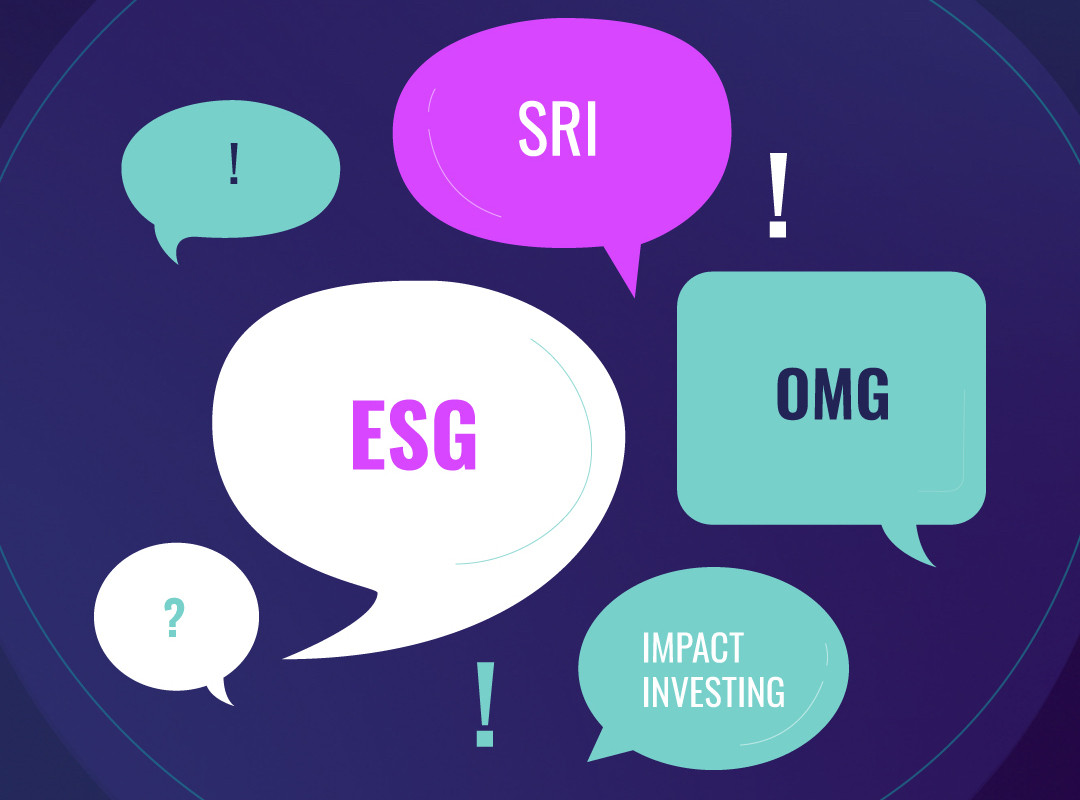 Back to Learn page
Back to Learn page

How Does ESG Relate to Risk Management?
With financial markets around the world still reeling from muddled efforts to curb a global pandemic, one financial notion seems to be gaining fresh support: ESG. However, much about ESG remains unexplored. Are ESG and risk management practices related? How can ESG be used to benefit organizations and investors from a risk standpoint? Does one of the three ESG pillars play a bigger role in terms of generating financial returns, utility, and risk management?
Some investors have a hypothesis that ESG investments generate stronger, more sustainable returns over the long term, and this has been exemplified in the past couple of years. ESG investments, indices, and companies that keep considerations of the three factors at the forefront of their culture have bounced back higher than unbothered counterparts; for example, the S&P 500 ESG Index has beat the S&P 500 Index since the first market slump in early 2020, sustainable bonds have seen record issuance in the year 2021, and organizations with good ESG ratings have displayed strong financial resilience since the economic downturn.
How can this phenomenon be explained? The answer lies in the fact that ESG can work as a risk management strategy; not just in financial terms, but also in view of management conditions and meeting regulatory requirements.
A report published by McKinsey tells us that good ESG practices could potentially lead to positive cash flows, as well as hedge financial and reputational risks due to the following reasons:
- ESG drives consumer preference as some customers are willing to pay a premium to go green. McKinsey also found that companies that use sustainable practices in their supply chain are able to cut costs.
- Responsible reporting minimizes regulatory and legal interventions, which generates less negative publicity for an organization.
- Having generous social policies in place helps motivate and retain staff, as well as increase employee productivity, which has been found to positively correlate with shareholder returns.
- ESG practices help optimize investments and capital expenditures. One way to get ahead of the curve is to consider making investments into assets that take advantage of sustainability tailwinds. For example, China’s efforts to curb air pollution is estimated to create over $3 trillion in investment opportunities across various industries through 2030.
Integrating ESG in business practices doubles as good risk management, which goes on to generate brand equity for companies and attract investors.
Research has found a positive relationship between ESG scores and brand equity value of S&P 500 companies. Good ESG incorporation mitigates reputational risks for an organization, and that is where investor confidence is built. In turn, investors manage financial risks by keeping exposures to ESG investments in their portfolios, which also helps them derive utility as they are inclined to feel that their investment decisions are part of a bigger movement to do better for the world.
It's the Social and Governance factors that actually push away the risks.
We constantly hear a lot of buzz surrounding the Environmental aspect which dominates sustainable investment allocations, but the value of the Social and Governance aspects which have a determining impact on sustainable practices, and as a result, risk management within an organization, are rarely ever given recognition.
Taking a deep-dive into how the “S” and “G” areas are equally at play as the “E” in contributing to sound risk management within a company and yielding positive returns for investors, we delve into some research on how the three factors impact financial performance on an absolute basis.
A recent study examined the overall and individual influences of corporate E, S, and G conduct on economic performance of S&P 500 firms. A breakdown of the scores for each aspect across companies from different industries and their correlation with the respective companies’ economic performances were looked at. The results may be surprising at first look: Corporate “E” conduct does not have any significant effect on firm economic performance, while conduct for “S” and “G” significantly influences firm economic performance.
The Social and Governance components are key to the general practices of risk management; aiming to do justice to these elements in the day-to-day course of running a business ensures responsible and skilled management structures, risk ownership, and compliance with regulatory requirements.
Here we covered reasons to explain these occurrences in the market — that ESG is an exceptional risk management tool for organizations internally, and also for investors in financial terms. More importantly, we saw that “S” and “G” are crucial to building optimal risk practices within a firm, which when combined with “E”, enhance the attractiveness of businesses and generate solid returns over the long term for investors.
References
Ajour, E. et al. (2020). The Role of Sustainability in Brand Equity Value in the Financial Sector. MDPI. Retrieved April 29, 2022, from https://www.mdpi.com/2071-1050/12/1/254
BNP Paribas SA Group (2021). BNP Paribas recognized by EcoVadis and FTSE4Good extra-financial ratings. BNP Paribas. Retrieved May 06, 2022, from https://group.bnpparibas/en/news/bnp-paribas-recognized-by-ecovadis-and-ftse4good-extra-financial-ratings
Cek, K. & Eyupoglu, S. (2020). Does environmental, social and governance performance influence economic performance? Scopus. Retrieved April 29, 2022, from https://www.scopus.com/record/display.uri?eid=2-s2.0-85087457813&origin=inward&txGid=4864f78cdc725470874f18fec147c309&featureToggles=FEATURE_NEW_DOC_DETAILS_EXPORT:1
Cheasty, G. (2019). Asset Management: Integrating ESG Risk into a Risk Management Framework. Deloitte. Retrieved April 22, 2022, from https://www2.deloitte.com/ie/en/pages/financial-services/articles/esg-risk-management-framework.html
Dorobantu, S., Henisz, W. & Nartey, L. (2022). Spinning gold: The financial returns to stakeholder engagement. Wiley Online Library. Retrieved May 09, 2022, from https://onlinelibrary.wiley.com/doi/abs/10.1002/smj.2180
Edmans, A. (2011). Does the stock market fully value intangibles? Employee satisfaction and equity prices. ScienceDirect. Retrieved May 09, 2022, from https://www.sciencedirect.com/science/article/abs/pii/S0304405X11000869
Henisz, W., Koller, T., and Nuttall, R. (2019). Five ways that ESG creates value. McKinsey Quarterly. Retrieved May 09, 2022, from https://www.mckinsey.com/~/media/McKinsey/Business%20Functions/Strategy%20and%20Corporate%20Finance/Our%20Insights/Five%20ways%20that%20ESG%20creates%20value/Five-ways-that-ESG-creates-value.ashx
Lawrence, E., & Zlatkova, S. (2020). Managing risk with ESG investing - CFA society chicago. Northern Trust Asset Management. Retrieved April 26, 2022, from https://www.cfachicago.org/wp-content/uploads/2020/10/Blog_-Managing-Risk-with-ESG-Investing.pdf
Murugaboopathy, P., & Dogra, G. (2021). Global sustainable bonds see record issuance in Jan-Sept 2021. Reuters. Retrieved April 26, 2022, from https://www.reuters.com/business/sustainable-business/global-sustainable-bonds-see-record-issuance-jan-sept-2021-2021-10-12/
S&P Global. (2022). S&P 500 ESG Index. S&P Dow Jones Indices. Retrieved April 22, 2022, from https://www.spglobal.com/spdji/en/indices/esg/sp-500-esg-index/#overview
∙ ∙ ∙
The views expressed are those of the author at the time of writing, are not necessarily those of the firm as a whole and may be subject to change. The information contained in this advertisement is for informational purposes and should not be regarded as an offer to sell or a solicitation of an offer to buy any. It does not constitute a recommendation or consider the particular investment objectives, financial conditions, or needs of specific investors. Investing involves risk, including the loss of principal. Past performance is not indicative or a guarantee of future performance. We do not provide tax, accounting, or legal advice to our clients, and all investors are advised to consult with their tax, accounting, or legal advisers regarding any potential investment. The information and any opinions contained in this advertisement have been obtained from sources that we consider reliable, but we do not represent such information and opinions are accurate or complete, and thus should not be relied upon as such. This is particularly true during periods of rapidly changing market conditions. Securities offered through Fennel Financials, LLC. Member FINRA SIPC.

Expand your knowledge further

Greenwashing is a superficial and sometimes misleading way companies claim sustainability.

There are a lot of terms used in the world of impact investing, what do they all mean?

Active ownership could help ESG investors push for more impactful change.

What does impact investing look like in practice?

Proactive companies prioritize ESG in their business practices.

Social impact doesn't always happen in a vaccum.

An ESG index can help you track the performance of certain ESG-vetted companies over time.

Let's take a look back at some of the things that happened during last year's AGM season.

Want to invest in bonds while having a positive impact on the world?

A growing number of future business leaders are learning about sustainability in their MBA programs.
Take back the power of your investment
